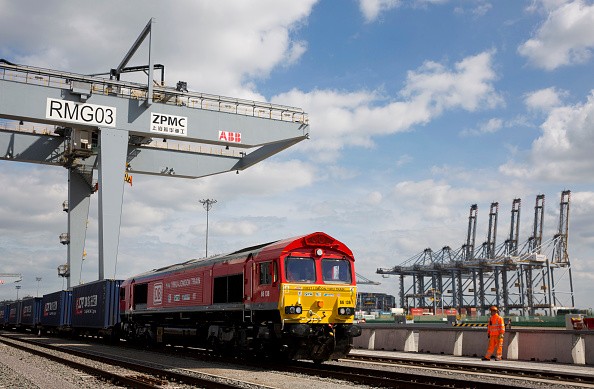On Monday, the first Silk Road freight train from Britain to China left the DP World London Gateway’s rail freight depot located in Corringham, east of London.
The train carries a variety of British goods including vitamins, baby products, soft drinks among many others.
The 32-container train left for its first trip amidst Britain’s efforts to buff its credentials on global trading. Britain aims to strengthen its trade links with different countries in preparation for its plan to leave the European Union in two years’ time.
It will take the train three weeks to complete its 7,500-mile journey from eastern England to eastern China. This is about half of the time required for a corresponding trip by boat.
Early this year, the first freight train from China reached Britain.
The train departed from a freight depot at Stanford-Le-Hope in Essex for Barking in east London. It will then pass through the Channel Tunnel into France and will move across Belgium, Germany, Poland, Belarus, Russia and Kazakhstan.
According to British Trade Minister Greg Hands, “this new rail link with China is another boost for global Britain, following the ancient Silk Road trade route to carry British products around the world.”
The freight train is managed by Yiwu Timex Industrial Investment. Through the Yiwu-London freight service, London became the 15th city in Europe to have a direct rail link with China under the “One Belt, One Road” Initiative. The initiative was launched by Chinese President Xi Jinping back in 2013.
The freight bound to China carries goods including soft drinks, vitamins, pharmaceuticals as well as baby products.
“This is the first export train and just the start of a regular direct service between the U.K. and China,” said Xubin Feng, chairman of Yiwu Timex Industrial Investment Co.
“We have great faith in the U.K. as an export nation and rail provides an excellent alternative for moving large volumes of goods over long distances faster,” Xubin added.
The launch of the first Silk Road freight train from Britain benefits both China and Britain. The British are hoping to strengthen its trade links while China continues to push its OBOR Initiative.



























